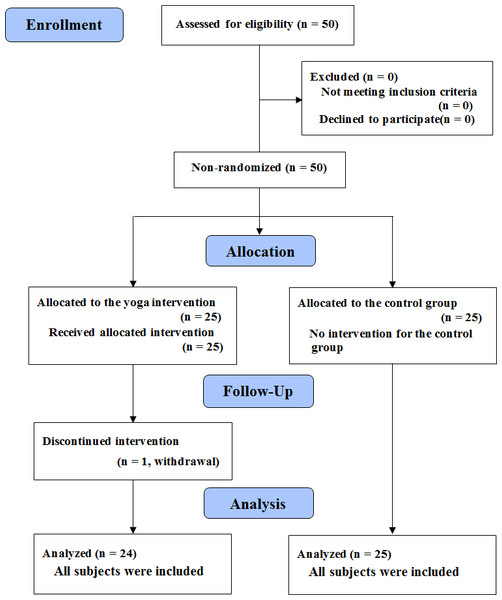Recent studies indicate that individuals with ADHD can significantly enhance their focus through a combination of behavioral interventions, technological advancements, and lifestyle adjustments. One promising approach is the implementation of structured routines. Experts emphasize the importance of consistency in daily activities, which can help individuals with ADHD create a sense of order and predictability. By
setting specific times for tasks and breaks, individuals can train their brains to focus better during designated periods.
Mindfulness practices have also gained popularity among those with ADHD. Techniques such as meditation, deep breathing exercises, and yoga can assist in improving concentration and reducing impulsivity. Mindfulness encourages individuals to be present in the moment, which can counteract racing thoughts and distractions. Incorporating these practices into a daily routine can promote emotional regulation and enhance overall well-being.
Finally, it is essential for individuals with ADHD to practice self-compassion. Recognizing that ADHD is a neurodevelopmental disorder, not a personal failing, can help alleviate feelings of frustration and inadequacy. Celebrating small victories and acknowledging progress can build confidence and motivation.
Finally, the importance of support systems cannot be overstated. Whether through therapy, coaching, or support groups, connecting with others who understand the challenges of ADHD can provide invaluable encouragement and resources. Parents, teachers, and employers play a crucial role in fostering an environment that promotes focus, understanding, and empathy.
Another myth is that ADHD is overdiagnosed and that many children are unfairly labeled. While it is true that the diagnosis of ADHD has increased in recent years, this trend is largely attributed to heightened awareness and improved diagnostic criteria. Experts emphasize that a proper diagnosis involves a comprehensive evaluation by a qualified professional who considers the individual’s history, behavior across different settings, and input from caregivers and teachers.
Once diagnosed, a variety of treatment options are available to help manage
ADHD habit formation symptoms. Behavioral therapies, psychoeducation, and lifestyle modifications are often recommended as first-line interventions. These approaches aim to enhance organizational skills, improve social interactions, and promote self-regulation. Additionally, medication can be an effective component of treatment for many individuals with ADHD. Stimulants, such as methylphenidate and amphetamines, are commonly prescribed and have been shown to improve focus and reduce impulsivity. Non-stimulant medications are also available for those who may not respond well to stimulants or prefer an alternative.
ADHD, a common neurodevelopmental disorder, impacts millions globally with symptoms like hyperactivity, impulsivity, and focus challenges. ADHD symptoms can be mitigated with proper coping mechanisms, empowering those affected. With increasing awareness, more resources are available to help individuals with ADHD thrive.
Attention Deficit Hyperactivity Disorder (ADHD) is a neurodevelopmental disorder that affects millions of children and adults worldwide. Characterized by symptoms of inattention, hyperactivity, and impulsivity, ADHD can significantly impact daily life, academic performance, and social interactions. Despite its prevalence, ADHD remains shrouded in misconceptions and stigma, leading to misunderstandings about its nature and treatment.
Schools play a crucial role in supporting students with ADHD. Educators are encouraged to implement individualized education plans (IEPs) or 504 plans to create an accommodating learning environment. Simple adjustments, such as providing a quiet space for tests or allowing extra time for assignments, can make a significant difference in a student’s academic success.
The Role of Meditation in ADHD Management
Meditation and mindfulness are valuable strategies for improving ADHD focus and calmness. Focusing on the present through mindfulness enhances ADHD-related emotional control. Breathing exercises, imagery, and body scans calm ADHD users and manage impulsive behaviors. Short mindfulness sessions integrated into routines enhance ADHD users' focus and emotional balance.
Moreover, recent research emphasizes the role of mindfulness and meditation in enhancing attention. Mindfulness practices, which encourage individuals to focus on the present moment, have been shown to improve self-regulation and reduce impulsivity. Techniques such as deep breathing and guided meditation can help individuals with ADHD develop greater awareness of their thoughts and feelings, allowing them to redirect their focus when distractions arise.
Diagnosing ADHD can be complex, as there is no definitive test for the disorder. Instead, healthcare professionals rely on comprehensive evaluations that include behavioral assessments, interviews, and standardized rating scales. It is crucial for clinicians to differentiate ADHD from other conditions that may present similar symptoms, such as anxiety or learning disabilities.
